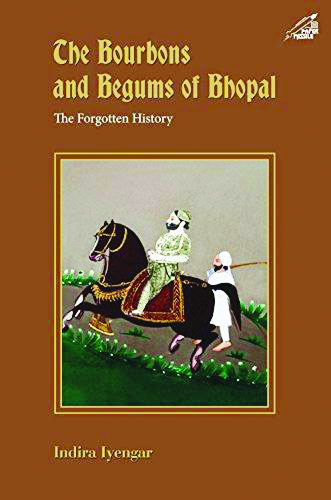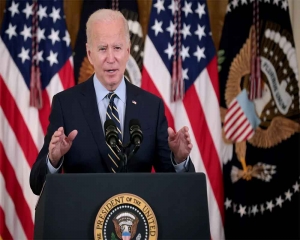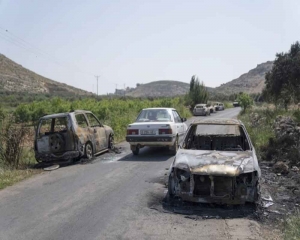The Bourbons and Begums of Bhopal
Author : Indira Iyengar
Publisher : Niyogi, Rs 510
A fitting tribute to the author’s mother, this book will inspire readers to pick up the threads and investigate Bhopal’s very own French affair, writes KALYANEE RAJAN
In one of his lesser known short stories titled ‘Dara Shikoh’s Durbar’, Premchand gives a prominent role to a French traveller named Dr François Bernier, as one of Prince Dara Shikoh’s valued courtiers. He attributes the presence of several European courtiers in the court to the assumption that they would be free of the bitter communal prejudices which divided the Hindus and Muslims. In the story, Bernier is seen rooting for peace and logic in the face of several failed expeditions of Dara Shikoh to Kandahar. In The Bourbons and Begums of Bhopal: The Forgotten History, Indira Iyengar carries out a labour of immense love and commitment as she sets about to excavate her French roots going back to the famed court of Mughal Emperor Akbar, where Jean Philippe de Bourbon fleeing incognito from his motherland, found refuge. He not only married into Akbar’s extended family, but was also given the title of the Bourbon Raja of Shergarh. Iyengar’s research reveals that Jean Philippe is understood to have married the sister of one of Akbar’s Armenian wives, and that she worked as a doctor for the Royal Harem of Akbar. Several such fascinating nuggets of information are peppered throughout the volume, which is more a product of love than practicality as the book is printed on glossy, fully-coloured, thick paper, adding more weight perhaps to a certain venerability of tradition meticulously excavated and laid out.
In 10 long chapters complimented by two ample appendices and several coloured plates from the author’s private collection, the reader is plunged into a saga of deracination, settlement, heroism and consolidation of an empire spread over centuries. Iyengar confesses how as the eldest of the family of Bourbons in India, she felt it was her duty to write about the “gallant past” of her family which “the Mughals appreciated and the Nawab Begums of Bhopal trusted”. The book is a tribute to her mother Magdalene Bourbon — “a historical account with a personal flavour”.
Having accessed the confidential records of the Agra Archdiocese to examine the history of the Agra Church, Iyengar puts forth convincing arguments based on significant documents connected with the Bourbons and their association with the development of the State of Bhopal. The exhaustive foreword by Bhopal historian Rizwan Uddin Ansari attests to the “painstaking effort” of the author. Iyengar’s writing style is that of an emotionally charged historian, who researches and narrates with passionate vigour. She ventures to put on record a compelling legendary tale, pauses to validate it with sources, and resumes her heroic narration. However, some of the cited sources might fail the test of authenticity as they come from individual, previously undocumented memories. Her primary source is her mother’s memories — the “backbone of this book”.
The first chapter, titled “Arrival of Jean Philippe de Bourbon in Akbar’s Court” talks about how Jean Philippe and his wife Juliana helped to build the first Catholic Church in Agra which was completed on 1588. Jean Philippe’s French origins are discussed in detail: He being a natural son of Duke Charles III de Bourbon (1490-1527) famously known as Connètable de Bourbon. The fascinating anecdote of Jean Philippe having to escape France at the age of sixteen because he had killed a French Lord in a duel is also related. The chapter documents observations about several graves of Agra Cemetery where many Bourbons are believed to have been buried. The second, third and fourth chapters titled “The Bourbons of Shergarh and Narwar”, “The Bourbons of Bhopal” and “Balthazar Bourbon, alias ShahzadMasih” respectively delve in detail into the Armenian as well as Christian connection of the Narwar fort which was thought to be second only to Gwalior Fort in yesteryears. It also housed a chapel with several resident priests. These three chapters provide details of the massacre of the Bourbons at the Narwar Fort. They show how Salvador Bourbon fled to the Gwalior Fort with a handful of remaining family members, to become a General in Bhopal State Army under the rule of Manji Mamola Bai. The book reveals that Mamola Bai also bestowed a Muslim name “InayatMasih” upon Salvador to pacify the orthodox Pathans of the State. Most of the third chapter is written in anecdotal style, with details of various fights and sieges in the ensuing struggle for power that the Bourbons fought jointly with Wazir Mohammad Khan and his son Nazar Mohammad Khan. Talking about the former, Iyengar’s emotional pen pours forth: “He was a real hero in the history of Bhopal; he repeatedly saved Bhopal in difficult times. He was, in fact, the real Nawab, though he never acquired the title”.
The fourth chapter combines with the third to firmly establish the connection between the Bourbons and Bhopal: How Salvador and his son Balthazar consolidated the Bhopal rulers by saving them from Maratha invasion and assisting in the crucial Treaty of Raisen with the Honorable East India Company in 1818 ratified by the Governor, Lord Hastings. The life and times of Balthazar Bourbon, his impeccable service as advisor to Bhopal’s fabled Qudsia Begum and his beautiful Farsi and Urdu poetry “Dewans of Fitrat” is documented in the fourth chapter. Iyengar says that these verses have never before been quoted or traced, while she has managed to retrieve and translate a few of them: “Paayanaho Buland kyon uske Kalaamka, Wasif Jo hoMaseey Alay Hus Salam ka” meaning “Why shouldn’t the status of his poetry be high, Of the person who is a follower of Jesus (the prophet) peace be upon him”.
The rest of the book deals with Madam Dulhan and her heroic acts including that in the uprising of 1857, the French Architectural influences in Bhopal especially the Shaukat Mahal, the decline of the Bourbons in Bhopal, the life and times of the writer’s mother and finally the first ever complete reconstruction of the family tree of the Bourbons in India.
Iyengar fastidiously relates the transition of French Bourbons into the mould of local Bhopali lifestyle, with Muslim names fusing with their European nomenclature and identity, as well as their adoption of local dressing, customs (observing purdah) and food: After offering prayers in the holy month of Lent, the whole family consumed roti and baingan kabhurtha! Historian Rizwan Uddin Ansari notes that the meticulously compiled family tree is “a major contribution of this book” which also “fills a huge gap in the literature regarding the contribution of the Bourbons in Bhopal’s history”.
Most of the rare photographs dating back to the 18th century from the author’s private collection passed on over generations are also treasure troves brought out in the public domain for the first time. Several handwritten letters and documents recording land deeds and bequests reproduced in the appendices are simply invaluable.


























